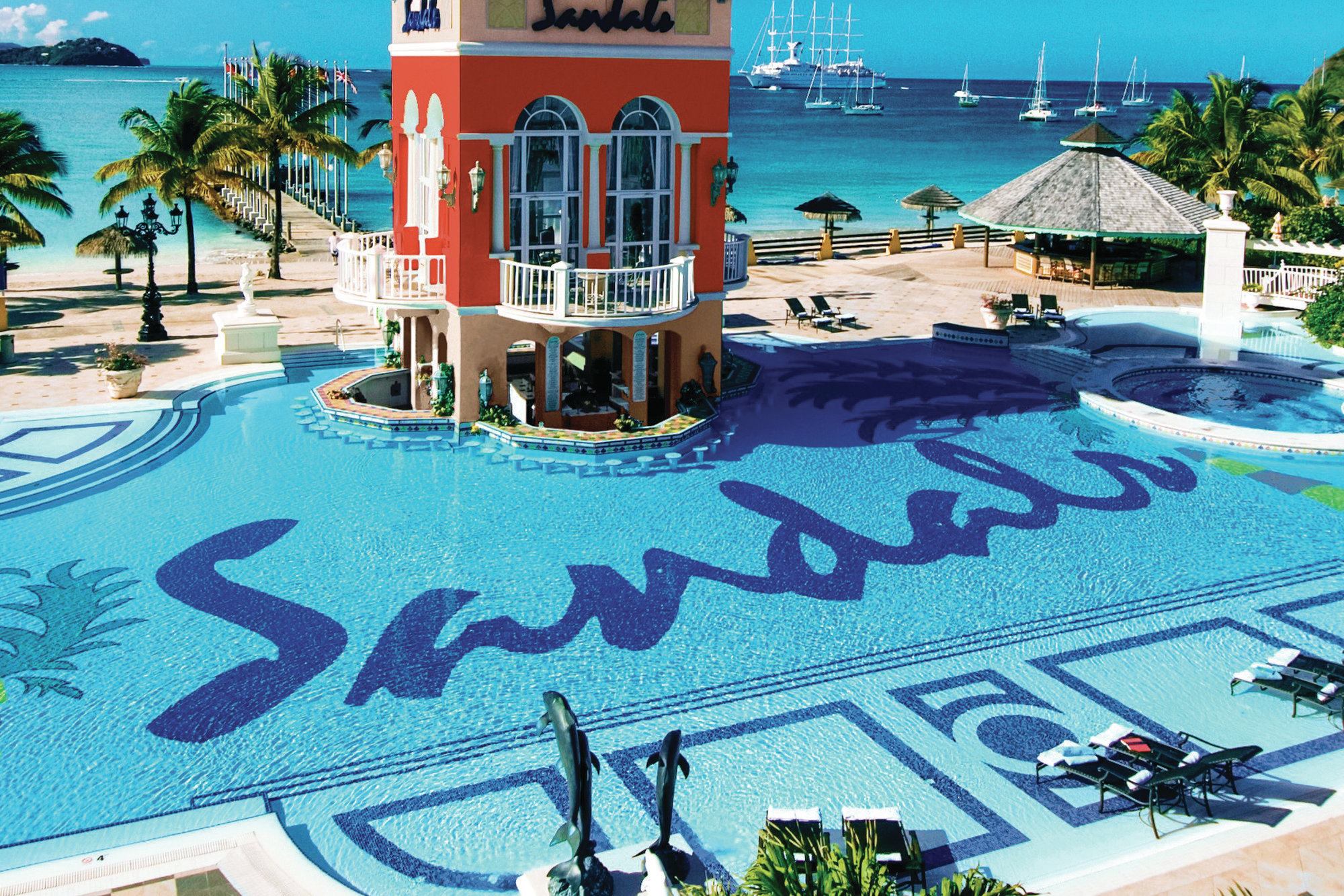An entrapment lawsuit against Jamaican resort giant Sandals will be heard in the United States.
The decision raises questions about the role that the Virginia Graeme Baker Act may — or may not — play in the case.
In December 2010, 33-year-old John Van Hoy Jr. drowned after becoming entrapped on a spa drain at the Sandals Royal Bahamian resort in Nassau. The following May, his relatives filed suit in Miami, naming Sandals and its marketing representative, Unique Vacations; pool and spa manufacturers A.O. Smith Corp., Hayward Industries, Pentair Water Pool and Spa (now called Pentair Aquatic Systems) and its subsidiary, Sta-Rite; and distributors SCP and Hospitality Purveyors.
The spa had a single-drain system, unsafe drain covers and no safety vacuum release system or other form of entrapment protection, the family claimed. They further alleged that the drain cover was not properly fastened, the water velocity exceeded Florida’s legal limit, and the lack of a shut-off switch and inability to access the pump room made it impossible to disable the equipment quickly enough.
The defendants filed a motion to dismiss the case for forum non conveniens, or inconvenient venue. They said the United States is not the proper place for a lawsuit, given the accident occurred in the Bahamas. Van Hoy’s family countered that they should be able to sue in the United States because the Jamaican resort firm does extensive business here, and the other defendants are U.S.-based.
The court stated the defendants did not sufficiently prove that conducting the case in the United States would cause an injustice or impose an unreasonable burden on their ability to include their witnesses or provide evidence, with the exception of one charge.
Judge Patricia A. Seitz added that the burden of proof here is heaviest for defendants. “[The] presumption for a plaintiff’s choice of forum is strongest when the plaintiff is a United States citizen,” she wrote.
One of the defendants’ attorneys said the decision should not have much bearing on the final outcome. “It surely has nothing to do with the merits of the case at all,” said David B. Newman, a partner in New York-based Day Pitney, LLP, which represents Hospitality Purveyors and Unique Vacations. “… I look at it more in terms of being administrative as opposed to substantive, and I don’t think the court is saying anything at all about the ultimate merits or where the court would come out on any other issue.”
The lawsuit cites the Virginia Graeme Baker Pool and Spa Safety Act, the federal bill mandating certain entrapment-protection measures. While it isn’t yet known if the defendants will be held to the American law, the plaintiffs’ attorney said, at the very least, it can be cited as an example of best practices.
“All that statute really represents is the collective minimal safety standards that everyone believes in the pool industry are minimal safety requirements,” said Keith Brais, principal of Miami-based Brais and Brais. “Even if the Virginia Graeme Baker Act ultimately doesn’t apply in a statutory sense, it certainly can be looked at as a minimal safety standard industrywide.”
Brais said his clients aren’t accusing the manufacturers and distributors of doing anything wrong outside the United States. In the discovery phase, he said, he plans to investigate whether the suction outlet covers were exported after Dec. 18, 2008 — the date when it became illegal for American manufacturers to sell non-VGB-compliant covers.
“So we’re not saying that the VGBA applies to conduct outside the United States, at least not in this complaint,” Brais explained.
He sees the decision having broad impact on cases involving American citizens traveling abroad. “Clearly, the first implication is that plaintiffs now, in this particular situation, are on a much stronger footing to ensure that they get their day in court in a U.S. court.”
Newman doesn’t believe the decision will carry such gravity, partly because it comes from a district court. “I think it will be another case cited by plaintiffs who are up against a motion to dismiss based on forum non conveniens,” he said. “I don’t think it will mean anything more than that.”



